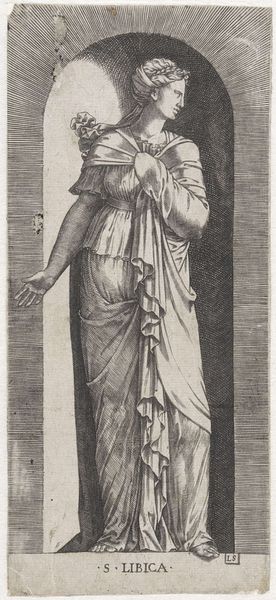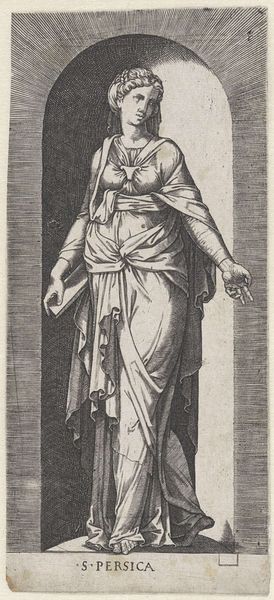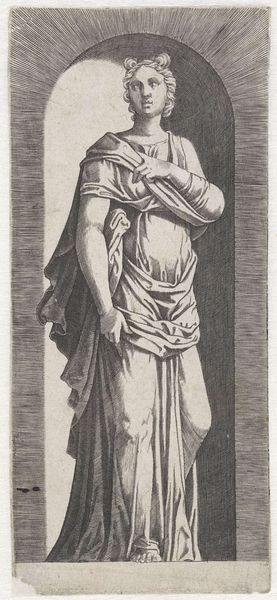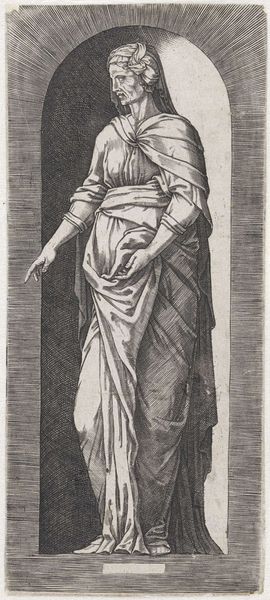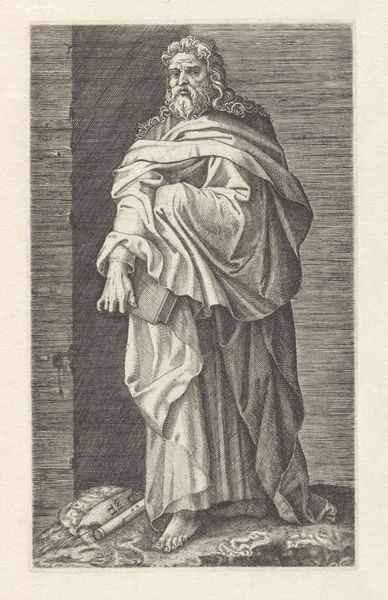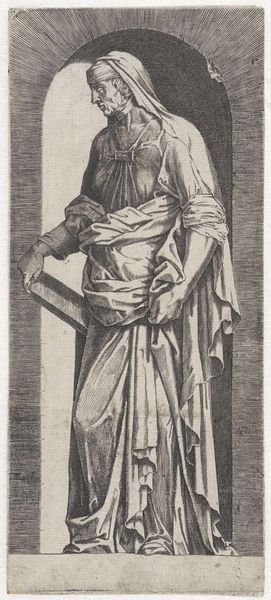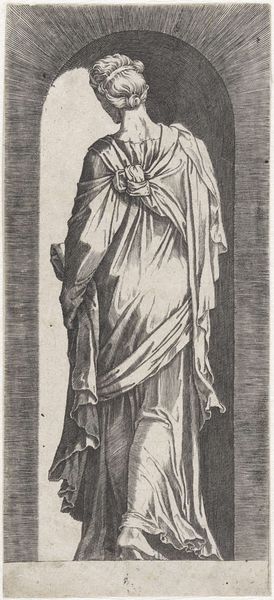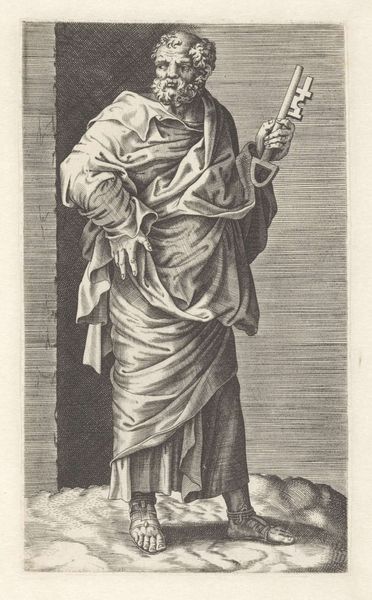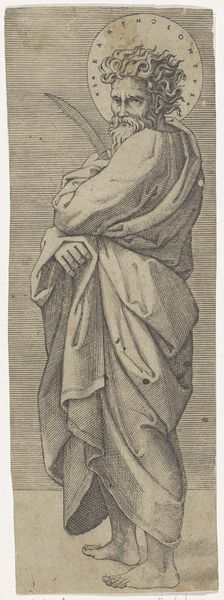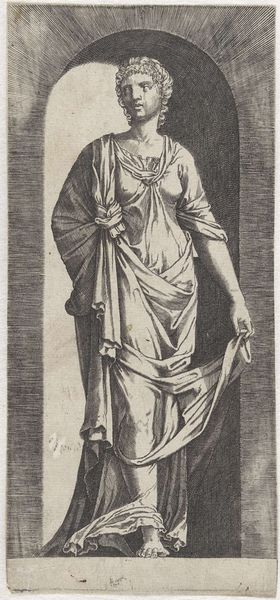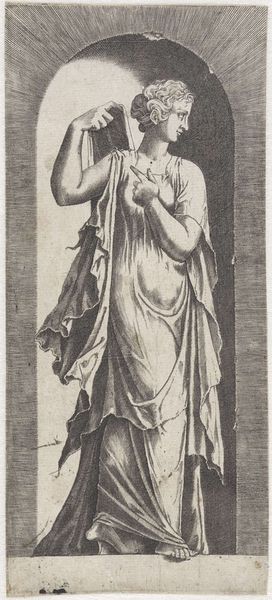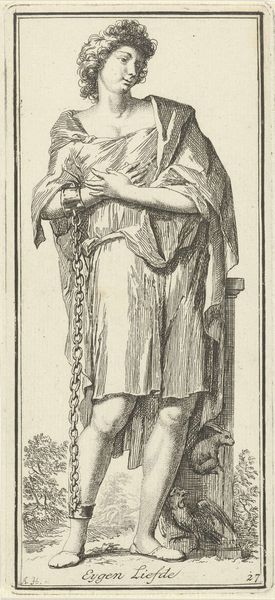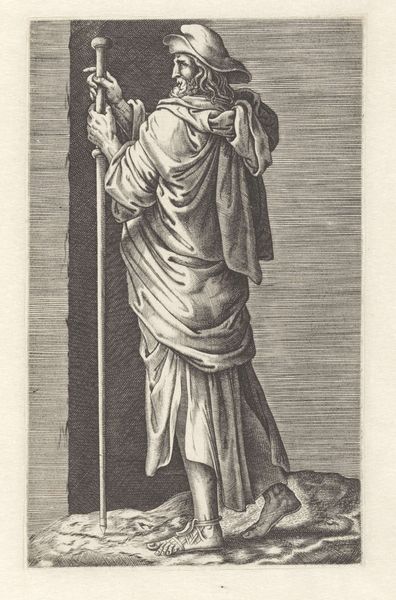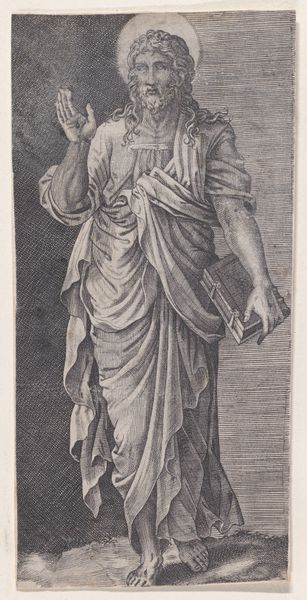
print, engraving
#
portrait
# print
#
mannerism
#
figuration
#
pencil drawing
#
portrait drawing
#
engraving
Dimensions: height 186 mm, width 81 mm
Copyright: Rijks Museum: Open Domain
Curator: Immediately, I notice the starkness. It feels austere, yet graceful. Editor: Indeed. We’re looking at an engraving by Lambertus Suavius, titled "Sibille wijzend met haar rechterhand," created sometime between 1520 and 1567. It portrays a Sibyl, a prophetic woman from classical antiquity. Curator: The gesture of her right hand…pointing, almost accusingly. It creates a sense of foreboding, wouldn’t you agree? Is she warning us? Editor: It’s open to interpretation. Pointing was a classical rhetorical pose. Lambertus Suavius was an important Mannerist printmaker, so he definitely knew it had historical significance in art and civic symbolism. Consider also her placement within that arched niche. Is she set apart? Protected? Or trapped? Curator: I’m particularly struck by the drapery. The way the fabric clings, suggesting a form underneath, but also concealing. It feels intentionally ambiguous. Editor: Precisely. That tension between revealing and concealing is central to Mannerist aesthetics. Beyond just a representation of cloth, the engraving emphasizes lines and composition, rather than strict anatomical accuracy. Think of Mannerism as a cultural response: a self-aware turn from Renaissance classicism during times of cultural uncertainty. Curator: This emphasis on the surface makes me question its relation to older depictions of similar sibyls. Is it evoking the same cultural memory, or something very different? Editor: Great question. If one recalls the vast range of depictions from antiquity to the Renaissance of powerful prophetesses within both sacred and secular realms, then we must remember Suavius worked in a rapidly changing society. He worked during a time of constant upheaval that directly informed art production and viewership. Curator: Seeing it that way, this figure is still a bearer of weighty symbolism, rendered through Mannerist aesthetics. It's not just about foretelling, but the artist trying to wrestle with how he sees his culture and its symbols. Editor: Precisely. It’s not about simply illustrating a prophecy but interrogating the role of imagery itself. Curator: That's a perspective shift I won't forget. Thank you. Editor: A cultural lens sharpens our appreciation, every time.
Comments
No comments
Be the first to comment and join the conversation on the ultimate creative platform.
